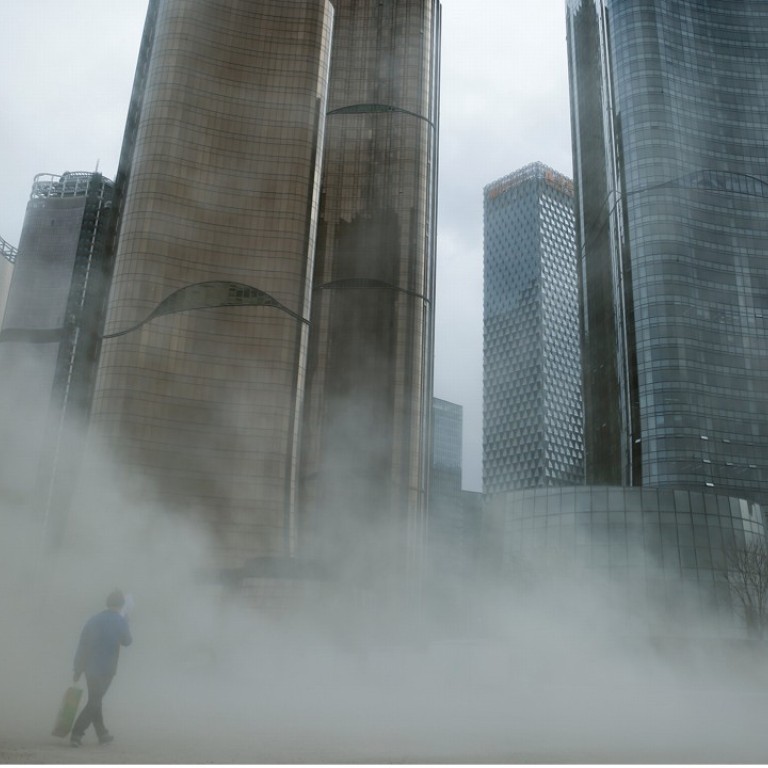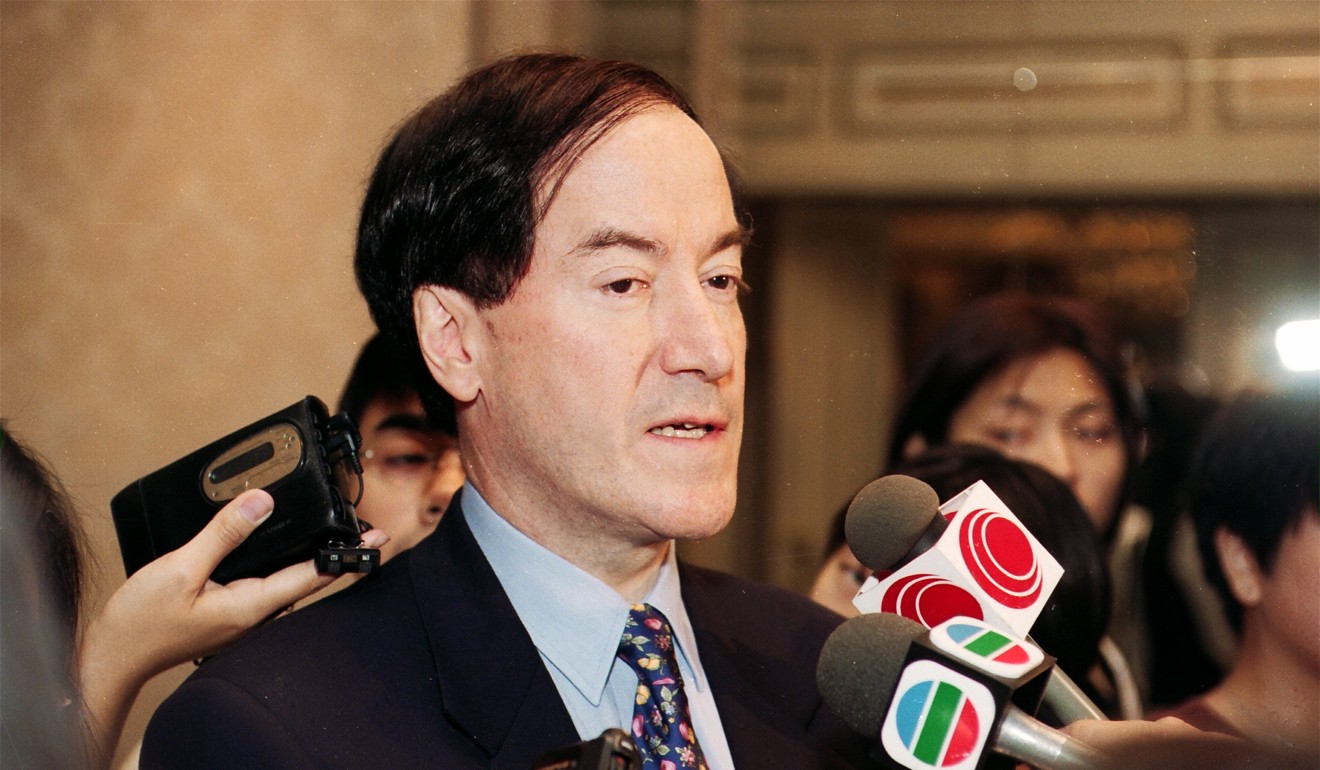
The next financial crisis is coming, I just don’t know when
‘For us humble savers, just one thing is clear: the next crisis is coming, and it is essential we prepare for it’
Twenty years ago this weekend I sat in the newly-minted auditorium of the Hong Kong Convention Centre in Wan Chai as Hong Kong played host to the World Bank and IMF meetings. I spectated first-hand on the complacent myopia of the world’s smartest and most powerful financial sector minds.
Just three months earlier, and after the most frantic construction efforts to meet immovable deadline pressure, the Convention Centre had opened its doors to host the historic ceremonies marking the transfer of sovereignty from Britain to China. It was a time of colossal hubris and optimism in Hong Kong, despite the world’s scepticism over Hong Kong’s future under Beijing’s rule.
The booming stock and property markets gave Hong Kong leaders a “we-told-you-so” swagger as the dire predictions of the world’s media had come to nothing. Joseph Yam, then chief executive of Hong Kong’s Monetary Authority, stood before the world’s finance sector leaders and boasted: “Things are going well here in Hong Kong.”
The one blot on the upbeat mood was a little local difficulty in Southeast Asia, with the crash of the Thai baht the day after Hong Kong’s transfer of sovereignty, and Malaysia’s Prime Minister Mahathir Mohamad fulminating against “rogue speculator” George Soros, claiming he had spearheaded an attack on the Malaysian ringgit. There were anxieties about the foreign currency debt exposures in South Korea and Indonesia, but all of this seemed containable.
The Group of Ten ministers’ communique said: “Given the financial market turmoil in Southeast Asia, which has many of its roots in weak financial systems (we) stress the importance of concrete and comprehensive implementation of a concerted strategy which… creates a macroeconomic and institutional setting favourable to sound credit cultures, (promotes) effective stakeholder oversight and good governance, (and institutes) sound regulatory and supervisory arrangements that support… market discipline.” If only it had been that easy.
Less than a month later, the Hong Kong stock market fell more than 10 per cent, and bank lending rates were hoisted to 300 per cent to fend off speculative attacks. The Dow fell 23 per cent in its wake. The carnage of the following 24 months is now history, but as the financial champions of the universe gathered in the Convention Centre, almost nothing was anticipated.
The Asian Financial Crisis was staunched only two years later, by which time humiliating bailouts adding up to more than US$100 billion had been arranged for Thailand, Indonesia, and South Korea. No economy in Asia was untouched. Governments in South Korea and Indonesia fell. Contagion had led to crashes as far afield as Russia and Brazil.

And the hubristic swagger of Hong Kong had gone, along with Peregrine Investments, Asia’s largest private investment bank, and about 70 per cent of the value of most Hong Kong people’s homes.
Our leaders had thought that the conservative capitalisation of our banks and the absence of significant foreign currency debt would immunise us against the upheavals around. What they had not anticipated was that Hong Kong, as a key regional financial hub, was sustained by, and dependent on, global financial flows through the economy. As the flows dwindled to a trickle, jobs and businesses starved, and Hong Kong emerged one of the severest casualties of the crisis.
Unrealised by many here in Hong Kong and abroad, household incomes in Hong Kong today are largely unchanged from 1997, and the sense of job security that pervaded the 1990s has gone as successive crises – the dot.com crash in 2000, Sars in 2003, and then of course the Great Recession following the 2007-8 crash – have delivered repeated waves of redundancies.
What an irony that the dire media predictions that China would enter and wreck Hong Kong were proven wholly wrong-headed – but that Hong Kong has suffered a traumatising 20-year recession anyway, for reasons that came from a completely unexpected direction.
Leap forward now to September 2017, as economic pundits wring hands not over the two decades since 1997, but over the “lost decade” following the 2007 US mortgage crash. There is an awful acknowledgement both that the process of “normalising” after 2007 has barely begun, and that the danger of a fresh global crisis is high. It is surely perplexing that lessons have not more clearly been learned or acted upon: go back to that Group of Ten leaders’ communique of September 1997, and it could be written today. So many of the challenges identified then remain unchanged today, and have been inadequately acted upon. Is it not painfully ironic too that Alan Greenspan’s 1996 warning of “irrational exuberance” could be made with equal force today.
How can anyone rest easy when it is clear that the present implausible strength of our asset markets – mainly bonds, shares and property – is entirely owed to historically unprecedented access to cheap money, and to the world’s central banks pumping into the world’s capital markets an aggregate US$34 trillion in “life support” operations necessitated after 2007?
As officials now set upon the unprecedented challenge of pulling those trillions back out of the economy to bring their debt levels back from the stratosphere, and begin to raise interest rates back towards normal levels, is it not self-evident that our asset markets must crash?
Deutsche Bank has just published its annual long-term assets survey, titled: “The Next Financial Crisis”. It lays out numerous possible triggers – a recession; a clumsy central bank unwind; deflation; an asset market crash; a collapse in market liquidity. Triggers could come from Italy, China, Japan or from Brexit-blighted Britain. The list is long. As one commentator noted: “The range of disaster scenarios shows that the experts simply do not know what will happen next.” And if the experts don’t know, what hope for us mere mortals with measly savings needing to be parked somewhere?
The Deutsche experts lay out the range of triggers. They predict with confident authority that the next crisis is on the way. But they offer no counsel on when it will unfold, where it will first hit, and how long it will traumatise us. Surely this is a shocking failing after two decades of awful experience to learn from? For us humble savers, just one thing is clear: the next crisis is coming, and it is essential we prepare for it. Who to turn to when we ask “How”?
David Dodwell researches and writes about global, regional and Hong Kong challenges from a Hong Kong point of view

